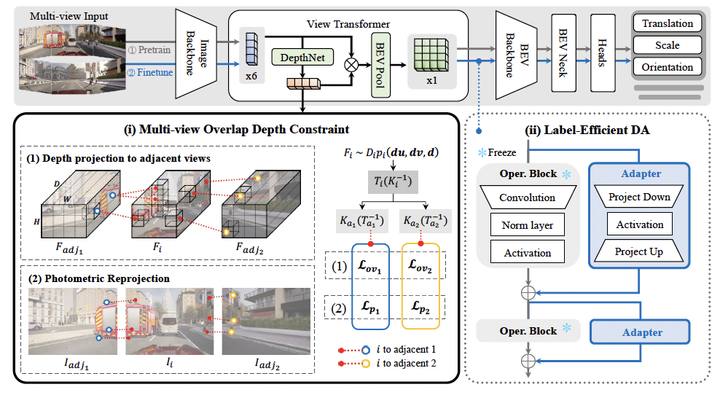
Abstract
Recent advances in 3D object detection leveraging multi-view cameras have demonstrated their practical and economical value in various challenging vision tasks. However, typical supervised learning approaches face challenges in achieving satisfactory adaptation toward unseen and unlabeled target datasets (i.e., direct transfer) due to the inevitable geometric misalignment between the source and target domains. In practice, we also encounter constraints on resources for training models and collecting annotations for the successful deployment of 3D object detectors. In this paper, we propose Unified Domain Generalization and Adaptation (UDGA), a practical solution to mitigate those drawbacks. We first propose Multi-view Overlap Depth Constraint that leveraging the strong association between multi-views, significantly alleviating geometric gaps from perspective view changes. Then, we present a Label-Efficient Domain Adaptation approach to handle unfamiliar targets with significantly fewer amounts of labels (i.e., 1% and 5%), while preserving well-defined source knowledge for training efficiency. Overall, UDGA framework enables stable detection performance in both source and target domains, effectively bridging inevitable domain gaps, while demanding fewer annotations. We demonstrate the robustness of UDGA with large-scale benchmarks, i.e., nuScenes, Lyft, and Waymo, where our framework outperforms the current state-of-the-art methods.